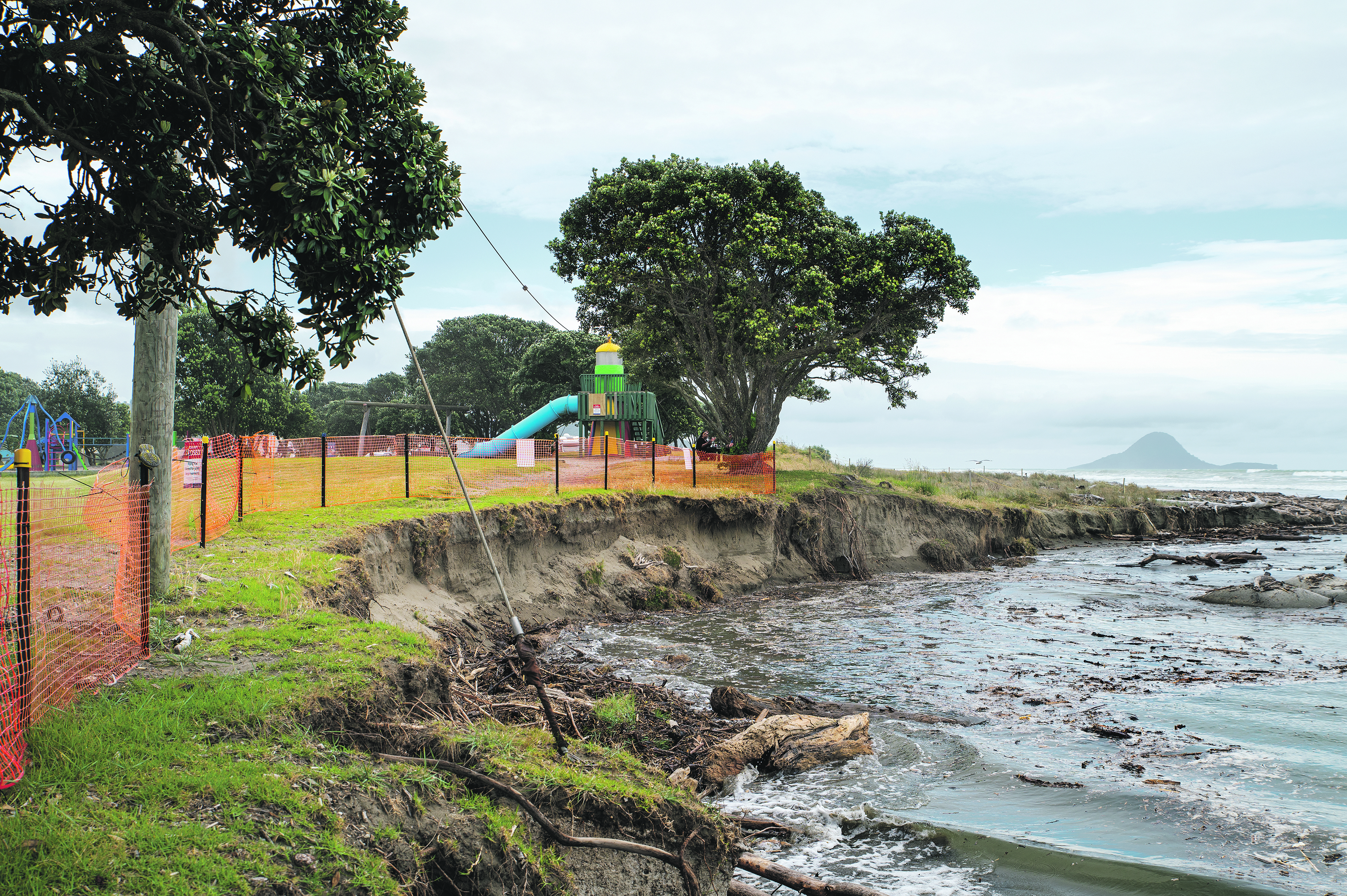Climate Pathway progress choppy

Diane McCarthy
The felling of the Valley Road pine forest earlier this year will result in Whakatāne District Council’s greenhouse gas emissions' almost doubling in its emissions audit for the 2024-2025 financial year.
In an update to Thursday’s final environment, energy and resilience committee meeting for the current council term, staff updated the committee on its progress toward meeting the targets of its community climate change strategy, Our Climate Pathway.
This was the second six-monthly update and marked progress one year on from the council’s adoption of the strategy.
An emissions' audit for the year ended June 30 is under way and expected to be presented to the council later in the year.
While final figures are still being confirmed, emissions are expected to be roughly double those of the previous year, mostly due to the pine tree felling, which resulted in approximately 2917 tonnes of carbon dioxide having to be accounted for.
The previous year’s emissions were 3800 tonnes and, apart from the one-off increase from the felling, they were on track to be consistent in the upcoming audit.
The Climate Pathway has led to improvements to council facilities to reduce power consumption, such as solar panels and more efficient water pumps.
Work is continuing to reduce the council’s fleet of vehicles and transition to electric or lower fossil fuel consumption vehicles.
Four council staff have purchased ebikes through the work-ride scheme and the council-initiated e-bike hire scheme is now managed by Community Resources Whakatāne (Crew).
Other progress made over the past year includes 24 percent of council staff having undergone climate change workshops. A climate change and resilience team has been established, a new greenhouse gas emissions accounting and auditing platform adopted, school waste education and programmes have been delivered at 38 schools and the council has worked with community group Zero Waste Whakatāne to promote waste minimisation.
A $160,000 Climate Change Risk Assessment created by consultants Tonkin & Taylor was also adopted at the meeting.The felling of the Valley Road pine forest earlier this year will result in Whakatāne District Council’s greenhouse gas emissions almost doubling in its emissions’ audit for the 2024-2025 financial year.
In an update to Thursday’s final environment, energy and resilience committee meeting for the current council term, staff updated the committee on its progress toward meeting the targets of its community climate change strategy, Our Climate Pathway.
This was the second six-monthly update and marked progress one year on from the council’s adoption of the strategy.
An emissions’ audit for the year ended June 30 is under way and expected to be presented to the council later in the year.
While final figures aere still being confirmed, emissions were expected to be roughly double those of the previous year, mostly due to the pine tree felling, which resulted in approximately 2917 tonnes of carbon dioxide having to be accounted for.
The previous year’s emissions were 3800 tonnes and, apart from the one-off increase from the felling, they were on track to be consistent in the upcoming audit.
The Climate Pathway has led to improvements to council facilities to reduce power consumption, such as solar panels and more efficient water pumps.
Work is continuing to reduce the council’s fleet of vehicles and transition to electric or lower fossil fuel consumption vehicles.
Four council staff have purchased ebikes through the work-ride scheme and the council-initiated e-bike hire scheme is now managed by Community Resources Whakatāne (Crew).
Other progress made over the past year includes 24 percent of council staff having undergone climate change workshops. A climate change and resilience team has been established, a new greenhouse gas emissions accounting and auditing platform adopted, school waste education and programmes have been delivered at 38 schools and the council has worked with community group Zero Waste Whakatāne to promote waste minimisation.
A $160,000 Climate Change Risk Assessment created by consultants Tonkin & Taylor was also adopted at the meeting.
